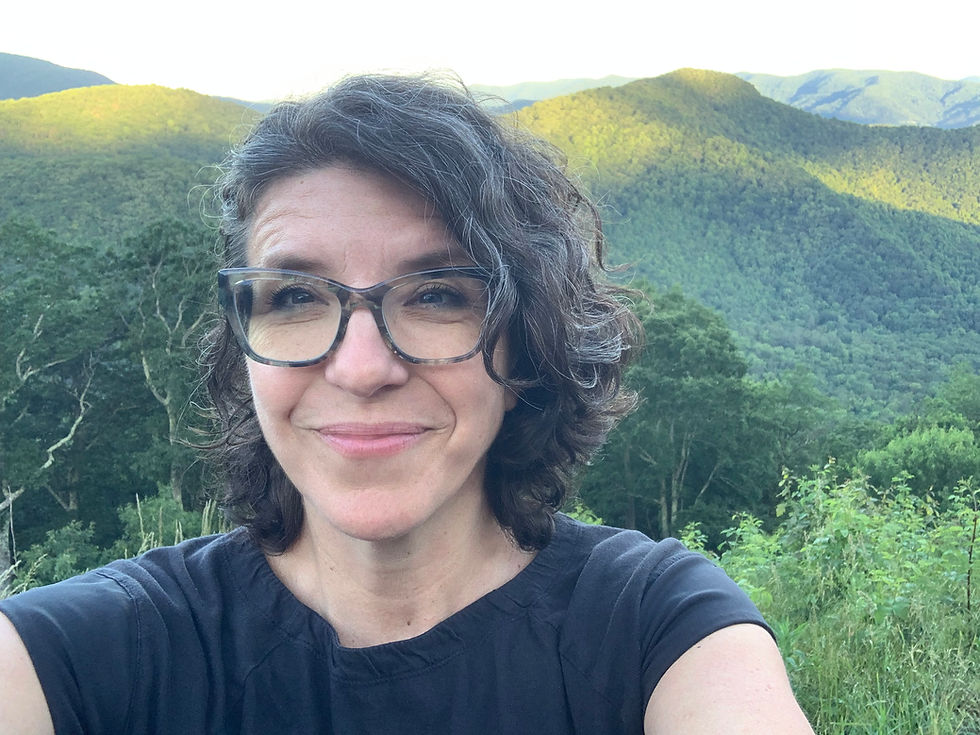The Wild Hen
- aeraustol

- Aug 21, 2020
- 4 min read
Covid is keeping children out of school in the fall of 2020. Cotton kept children like my mother out of school in places like West Tennessee in the late 1950’s and early 1960’s. White children and black children in the same cotton fields. I grew up hearing stories of how my grandmother insisted that my mother and her siblings pick cotton side by side with the black children. This gesture did not make her popular with the other white women. This story became the seed for a flash fiction story I wrote last year. My grandmother is 96 and deep inside her is that firecracker. That wild hen. Let’s all strive to be wild hens or firecrackers (or whatever name suits you) in our communities like my grandmother did back in the day. My story below is a swirl of fiction and nonfiction, one of my favorite writing pastimes! Enjoy and let me know how you've been a wild hen.
The Wild Hen
I can almost feel the sun beating down on my grandmother’s feet, crossed at the ankles and sticking out of the shade of a tree, as she eats her bologna sandwich by herself. Her name is Margie. She squints, looking over at the other white ladies who didn’t invite her to eat her lunch with them. They are chatting like a bunch of hens with their feathers ruffled about a wild animal in the coop. Margie is the wild animal. But she isn’t there to kill anyone. She is there to be a different kind of hen.
I can almost smell her earthy sweat and the smell of pickle juice from the jar she’d slid into her lunch sack that morning. Lunch is not complete without a dill pickle. She’d share with the other ladies if they’d sit on the cool autumn grass with her. They are mad at her for being kind. They are mad at her for not following the rules of the south. It is early October of 1962. Margie is a young mom.
That day, she told her daughters to pick cotton with the black kids. I can almost see the noses of the white ladies turned up as if to sniff the air. I can almost see their heads leaning in to one another, whispering. I can almost see my own mother, ten, sitting with black kids and white kids. Maybe they are comparing their lunches. Meatloaf versus spam sandwiches. Tang versus tins of milk. Jell-O versus carrot sticks. When I was in third grade in Springfield, Missouri, 20 years later, we compared our lunches too. Little Debbie snacks versus homemade oatmeal cookies. We all wanted store bought treats. It was the 80’s.
I can almost see my mother’s black curly hair blow slightly in the breeze that makes picking cotton bearable. Even in October, sweat drips down the sides of little foreheads. I can almost hear one of the kids tell a joke and they all lean back, their faces lifted to the sky in unity.
I can almost see the way the white-only children lean in to one another, the way their mothers do and whisper about the mixed kids. They glance sideways, laugh, and furrow their brows in learned hate.
After Margie folds up her tin foil and drops it into her sack, she stands up and stretches a little. It is time to get back to work. She passes the other white ladies as she makes her way to her girls to take their sacks to put them in a pile with hers in the shade before she completes the second half of the cotton picking day. I can almost feel the white women gaze at my grandmother. They are thinking: Who does this woman think she is?
I can almost hear the chatter of the children finishing up their lunches. Margie joins a scattering of black mothers taking their childrens’ lunch bags.
I can almost hear my footsteps scrambling into this old memory I’ve been hearing since I was old enough to sit on my grandmother’s porch swing and care about the old days. The days that seemed to exist only in movies.
I can almost hear myself telling those ladies who Margie thinks she is. I’m looking down on them. Yelling about my grandmother. How she’s brave enough to know that all people are created equal. That white kids aren’t anymore special than the black kids. That my Granny is the best kind of wild. She’s the kind of wild that is quiet and deliberate. The kind who takes a stand without saying anything at all.
They look at me, shielding their eyes from the sun I’m not tall enough to block. I can almost feel my grandmother’s hand on my shoulder and feel the feathery tickle of her whisper telling me to hush. She doesn’t need me to speak for her. She doesn’t need me to prove her worth. I can almost see the white ladies’ mouths hanging open. They are looking up on my grandmother, her reddish brown hair lifting in the wind.



Comments